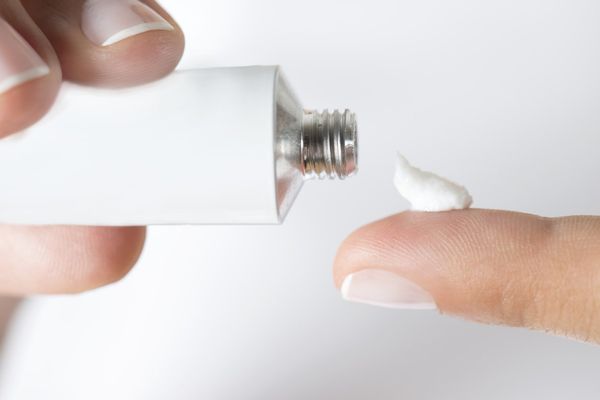Emily Jamea, Ph.D., is a sex therapist, USA Today Best-Selling author and podcast host. You can find her here each month to share her latest thoughts about sex.
One of the most common questions I get asked is, “What can I do to get my wife to want to have sex more often now that she’s gone through menopause?”
Suffice to say that menopause can take a major toll on a woman’s libido. While I occasionally see women who say they could go without sex for the rest of their lives, most long for the days when they felt more naturally sexually inclined.
The sexual changes that happen as a result of menopause are frustrating for both women and their partners. Most couples see sex as an opportunity to connect not just physically, but also emotionally. It can feel like something important is missing when that element of the relationship disappears.
Although menopause has a profound impact on sexuality, there are strategies to maintain a fulfilling and satisfying intimate connection during this stage of life.
Read: 9 Ways Menopause Can Give Your Sex Drive a Boost >>
Most people complain about losing their sex drive beginning in perimenopause. While the hormonal changes from menopause can have a direct effect on libido, desire for sex usually drops as a result of other changes. If you’re not sleeping well, if you’re having constant hot flashes and mood swings, if you gain weight, if sex becomes painful … you’re not going to want to do it. In other words, desire for sex goes down because menopause can cause chaos in other areas of your life.
These emotional changes can indirectly impact your interest in sex and overall sexual satisfaction. The psychological aspects of transitioning through menopause can create a complex interplay of emotions, body image concerns and self-esteem issues, all of which can influence sexual desire.
Then there are changes in the body. During menopause, estrogen levels decrease. Estrogen is essential for vaginal lubrication and elasticity. When estrogen levels decline, women may notice that they don’t lubricate as naturally. Also, the vagina may not stretch as easily. Together, this can make sex painful. Again — if sex hurts, you’re not going to want to do it. For most women, desire and arousal are linked. So, estrogen-linked decline in arousal can also impact desire.
Testosterone also declines as we age, especially after menopause. (Side note: Both men and women need estrogen and testosterone for optimal sexual function.) Low testosterone can affect our ability to maintain muscle (cue body image issues) and — you guessed it — affect our libido.
Progesterone also drops during menopause. This can impact sleep and mood, and lead to hot flashes and night sweats.
Watch: Ways to Cope with Common Menopause Symptoms >>
What should you do about these hormonal changes? You can consider hormone therapy. Research shows that hormones offer many protective health (and sexual health) benefits with few side effects.
If you’re interested in hormone therapy, talk to your healthcare provider (HCP) doctor, and always make sure your HCP doctor is up to date on the latest research.
Exercise is one of the best things you can do for your health at any stage of life, but especially as you age. Strength training, in particular, can combat some of the changes in low testosterone as well as protect against bone density loss. Research also shows there are psychological benefits to exercise including improved mood, body image and libido.
We can’t talk about post-menopausal sexuality without also discussing the importance of psychological and relational interventions. Rather than seeing this chapter of your life as the beginning of the end, see what happens when you consider the many benefits of sex in later life. Older people tend to be less inhibited and self-conscious, which makes sexual exploration more fun and exciting. Couples who learn to adapt to — rather than resist — the changes that come with aging can maintain a sexual connection that stands the test of time.
If you’re really struggling to stay connected to your sexuality after menopause, consider working with a sex therapist. There are many strategies that can help you rediscover your sexuality as well as help you maintain a strong intimate connection with your partner.
Read: How Male Partners and Others Can Support Women During Menopause >>
Sex after menopause is a topic that deserves open discussion and understanding. While the physical and emotional changes that come with this life stage can present challenges, they also offer opportunities for growth, exploration and new ways of experiencing intimacy.
By embracing effective communication, seeking support and adapting to changes with a positive mindset, women and their partners can navigate this phase together, fostering a fulfilling and satisfying sex life that continues to evolve and flourish.
- If You Experience Post-Menopausal Painful Sex, Speak Up! ›
- Yes, There Is Sex After Menopause ›
- Sex Doesn't Have to End With Menopause ›
- Sex After Menopause: The Golden Years? ›
- How to Have the Best Sex of Your Life After Menopause ›
- Maintaining a Strong Sexual Connection During Midlife - HealthyWomen ›
- Coaxing Back Desire After Menopause - HealthyWomen ›







